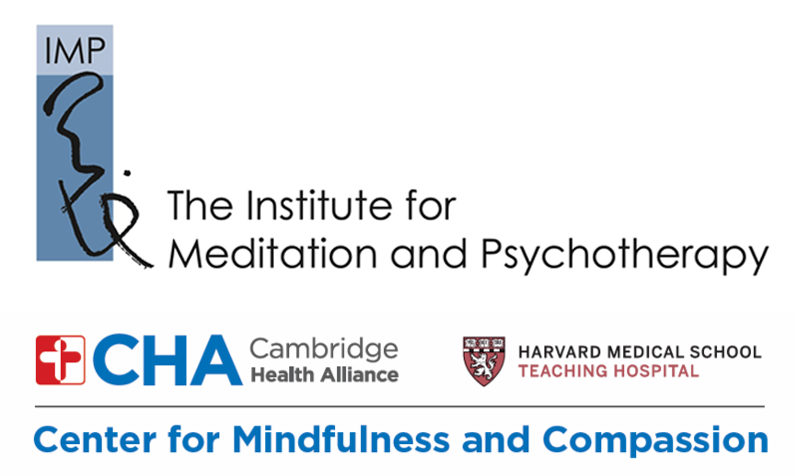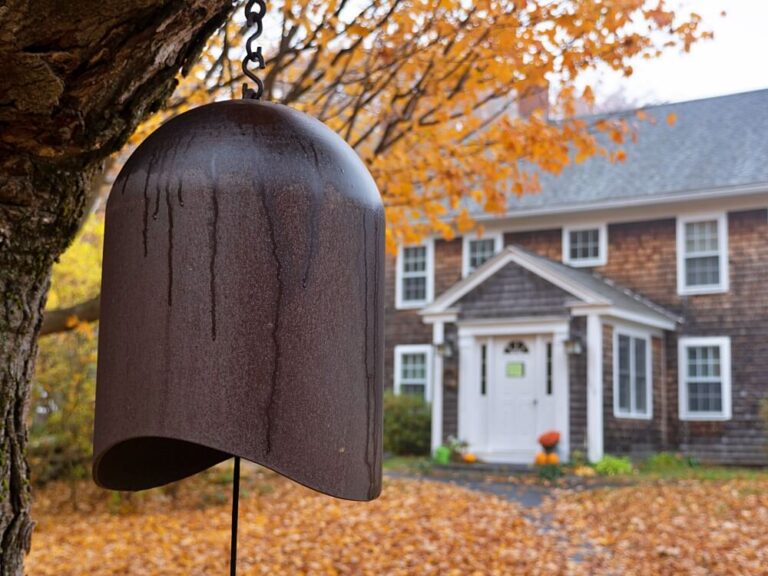- September 12, 2025 - May 31, 2026


Amanda Peacock, LCSW
Jennifer Earls, MA
Paula Fuchs, Psy.D.
Jeanne Mahoney, MSW
Ann Biasetti, LICSW
Barbara Furstenberg, Psy.D.
Hila Brukman, Art Therapist
Students may attend the opening and closing retreats in-person or remotely via Zoom.
All other real-time group meetings during the year are held online.

The Barre Center for Buddhist Studies is happy to be partnering with the Institute for Meditation and Psychotherapy on their Certificate Program in Mindfulness & Psychotherapy.
This is a 9-month immersive training for mental health and other healthcare professionals in the application of mindfulness to psychotherapy and the delivery of care. Unlike many other professional programs, this program draws heavily on a deeper understanding of mindfulness in the context of a path of awakening, a strong commitment to the creation of a supportive learning community, and support for every student’s personal engagement with practice and the program material.
This program forms the core for the Advanced Fellowship in Mindfulness and Psychotherapy at the CHA Center for Mindfulness and Compassion affiliated with the Harvard Medical School Department of Psychiatry – the first such professional advanced clinical fellowship for training mental health professionals associated with a major medical school.
The certificate program consists of two retreats (at the opening and closing of the program) for didactic instruction, community building, and meditation instruction/practice, and online components including:
Ongoing instruction/discussion with faculty members
Small-group moderated live discussions, case consultation, and practice instruction
Asynchronous video lectures and readings by international experts
Active online discussion forum on program material
Prerequisites / Admission:
This program is by application only. It is expected that applicants are familiar with mindfulness meditation, and though the focus is on psychotherapy, those in other helping professions will be considered. Enrollment is limited.
Continuing Education:
CE credits for psychologists, social workers, and counselors have been applied for. CMEs are not available for physicians. Up to 60 CEs are offered for those completing the program.
Enrollment is limited and will remain open until all spots are filled. Applicants will be notified within three weeks of submitting a complete application. Once the program is filled, qualified applicants will be put on a waitlist. If you are waitlisted and not offered a spot by the start of the program, you will be refunded at that time.
September 12, 2025 - May 31, 2026
Includes two retreats and regular online programming
September 12-17, 2025
May 28-31, 2026
Students may attend the opening and closing retreats in-person (staying on-site or commuting) or remotely via Zoom. All other real-time group meetings during the year are held online
Approximately 35 weeks
Approximately 4 hours/week
Attendance at retreats (in-person and remote options available) and weekly online Office Hours and Section Meetings (schedule to be coordinated after registration)
Recorded video lectures
Suggested readings
Peer discussion board
This program is for psychotherapists and those in other helping professions. Applicants should have experience with mindfulness meditation.
The opening retreat will offer a deep dive into Buddhist psychology, orientation to the program, didactic instruction on the role of the clinician’s own mindfulness practice, meditation instruction and practice, and opportunities to become familiar with the year’s learning community.
There are three ways to attend the retreats:
*Remote students will attend sessions virtually via Zoom during the retreats.
There are two available options for attending the opening and closing retreats:
William Edelglass, Ph.D.: Fundamentals of Buddhist Psychology: 1) The Phenomenal Field 2) The Construction of Experience 3) Interdependent Arising of Self. 4) Working with Mental States. 5) A New View of Health
Paul Fulton, Ed.D.: Mindfulness as Advanced Clinical Training for the Psychotherapist, 1) What Variables Predict a Positive Treatment Outcome? 2) What does the Clinician’s Mindfulness Contribute to a Positive Treatment Outcome?
Susan Morgan, CNS, and Bill Morgan, Psy.D.: Meditation Instruction
Liz Roemer, Ph.D.: Mindfulness and Acceptance-based Behavioral Therapies for Anxiety
Dennis Tirch, Ph.D.: Shame and Self-Criticism: Contributions of Compassion Focused Therapy
Ron Siegel, Psy.D.: Fitting the Practice to the Problem
Shelly Harrell, Ph.D.: Sociocultural and Sociopolitical Considerations for the Use of Mindfulness in Psychotherapy
Zindel Segal, Ph.D.: What is the Role of Mindfulness Practice in the Management of Mood Disorders?
Chris Germer, Ph.D.: Self-Compassion in Clinical Practice
Rod Owens: Compassion that Meets the Times: Exploring the Stages of Developing Radical Compassion
Ron Siegel, Psy.D.: Beyond Symptom Management: Treating Psychophysiological Disorders
Jan Surrey, Ph.D.: Psychotherapy as Relational Mindfulness Practice
Zev Schuman-Olivier, MD: Mindfulness and Meditation in Addiction Treatment and Recovery
Gita Vaid, MD: Psychedelic-Assisted Therapy and its Relationship to Mindfulness and Contemplative Psychotherapy
Paul Fulton Ed.D.: Understanding Suffering
Susan Kaiser-Greenland & Chris Willard, Psy.D.: Teaching the ABCs of Attention, Balance and Compassion to Children, Teens, and their Families
Willoughby Britton, Ph.D.: Adverse Effects of Mindfulness Meditation and MBIs
Rick Hanson, Ph.D.: Neurobhavana: Mindful Cultivation and Positive Neuroplasticity
Sara Lazar, Ph.D.: Neuroscience of Mindfulness & Meditation
Paul Fulton, Ed.D.: Personality in Mindfulness & Psychotherapy
Jud Brewer, MD: Craving to Quit: Breaking the Addictive Loop
Susan Pollak, Ed.D.: How to Speak to, Teach, and Apply Mindfulness and Compassion with Patients
Alice Rosen, Ms.Ed., LMHC: Addressing Disordered Eating Through Mindfulness, an Essential Healing Alice Rosen Factor
Koshin Paley Ellison, MFA, DMin, LICSW, & Robert Chodo Campbell, HCC: Contemplative Approaches to Living, Dying and Death
Stephanie Morgan, Psy.D., MSW: Sila or Morality Practice: Implications for Psychotherapy
John Briere, Ph.D.: Mindfulness, Insight, and Trauma Therapy
Paul Fulton Ed.D.: Self in Psychotherapy and Mindfulness
Susie Fairchild, LMHC, Jorge Armesto, Ph.D., C-IAYT, Fabiola Giraldo, M.Psy, PCC: Section Meetings: section-faculty-moderated small group discussion of program material and its application to student work environments
**subject to change**
This program is by application only. It is expected that applicants are familiar with mindfulness meditation, and though the focus is on psychotherapy, those in other helping professions will be considered. Enrollment is limited.
Applications Open: Currently Open
Applications Close: Enrollment is limited and will remain open until all spots are filled.
Applicant Notification: Within three weeks of submitting a complete application
Program Starts: September 12, 2025
Application fee: 10% of the payment. This fee is refundable only in the case that we are unable to offer you a place in the program. Please see the cancellation policy.
Once the program is filled, qualified applicants will be put on a waitlist. If you are waitlisted and not offered a spot by the start of the program, you will be refunded at that time.
Due to space, the number of spots to attend retreats in-person is limited. If you are accepted and would like to attend the retreats in-person, but we are unable to offer you an in-person place, your application will automatically be changed to attend the retreats remotely, and you will be added to the waitlist for attending in-person. There will also be the option to attend the retreats in person as a commuter.
As a way to uphold our mission and values around diversity, equity, and inclusion, we are using the following policies with regard to program registration:
A limited number of admissions are available at a scholarship rate (a discount on the full tuition). Please see the rates below. In addition, limited donated funds are available to BIPOC and international applicants. To inquire about reduced tuition, please write to the BCBS front office at contact@buddhistinquiry.org.
9-Month Program with In-Person Retreats – Onsite Housing:
Meals + Lodging Included (transportation not included)
Standard Tuition: $4,900
Scholarship Rate: $4,250
9-Month Program with In-Person Retreats – Commuting:
Meals Included (lodging not included)
Standard Tuition: $4,500
Scholarship Rate: $3,900
9-Month Program with Remote Retreats:
Standard Tuition: $3,600
Scholarship Rate: $3,150
10% deposit due with application (refunded if not accepted)
100% of the remaining balance due within 2 weeks of date of acceptance.
We understand that personal circumstances may require you to cancel your registration. In these cases, please contact us right away.
CEUs for psychologists, social workers, and counselors have been applied for. CMEs are not available for physicians. Up to 60 CEUs are offered for those completing the program.
Deepening Practice,
Building Community.
Want to stay informed about news, resources, and upcoming programs at the Barre Center for Buddhist Studies?
© 2024 Barre Center for Buddhist Studies